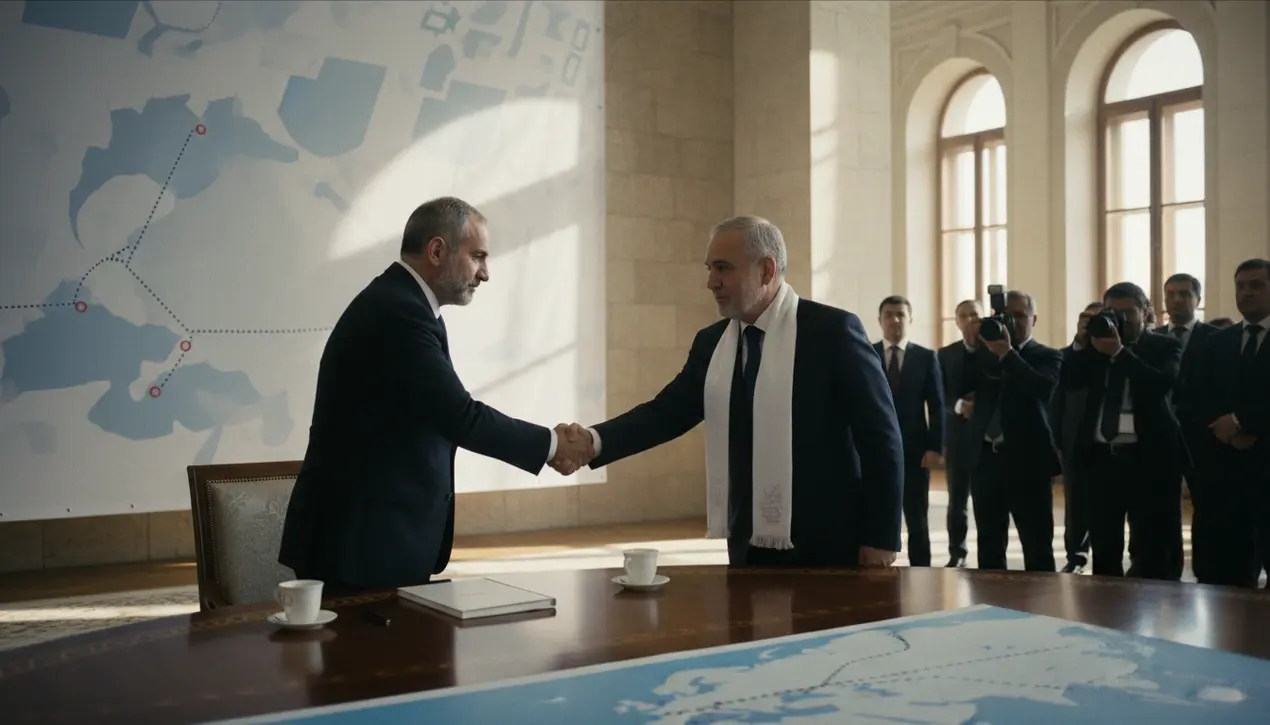
PoliticsdiplomacyPeace Talks and Treaties
Kazakhstan Backs Armenian Peace and Transport Corridor Initiatives.
RO
Robert Hayes
2 hours ago7 min read
In a significant diplomatic maneuver that underscores the shifting geopolitical tectonics of the post-Soviet space, Kazakhstan has formally endorsed Armenia's ambitious Peace and Transport Corridor initiatives during Prime Minister Nikol Pashinyan's recent state visit to Astana. This endorsement is not merely a logistical agreement; it is a profound strategic recalibration.For decades, the South Caucasus has been a chessboard for regional powers, with landlocked nations like Armenia often constrained by the political and economic blockades of more dominant neighbors. Kazakhstan’s backing, therefore, represents a deliberate pivot towards diversifying regional transport routes, a move that analysts are comparing to the historic realignments seen in the wake of the Soviet Union's collapse.By supporting this corridor, which aims to create a new artery for international trade and stability, Astana is signaling a desire to reduce its own, and the region's, traditional over-reliance on routes controlled by Russia. This is a calculated step towards greater sovereignty, reminiscent of the cautious yet determined foreign policies adopted by Eastern European nations following the fall of the Berlin Wall.The initiative, often framed within the broader context of international peace and prosperity, now carries the weight of two nations seeking to carve out an independent economic destiny. The implications are far-reaching.A successful corridor would not only bolster Armenia's besieged economy by providing it with alternative access to Central Asian and Chinese markets but would also enhance Kazakhstan’s role as a central Eurasian logistics hub, counterbalancing Moscow's historical dominance over regional trade flows. However, the path forward is fraught with challenges.The unresolved Nagorno-Karabakh conflict continues to cast a long shadow, and Azerbaijan's stance on any corridor traversing Armenian territory remains a critical, unresolved variable. Furthermore, Russia, the traditional hegemon in its self-declared 'near abroad,' is unlikely to view this nascent alliance with indifference. The success of this venture will depend on intricate diplomatic maneuvering, substantial international investment, and a fragile, sustained political will—a test of statecraft that will determine whether this corridor becomes a conduit for prosperity or merely another line on a map of unfulfilled potential.
#featured
#Kazakhstan
#Armenia
#peace initiative
#transport corridor
#regional cooperation
#Nikol Pashinyan
#Astana
Stay Informed. Act Smarter.
Get weekly highlights, major headlines, and expert insights — then put your knowledge to work in our live prediction markets.
Related News
Comments
Loading comments...
© 2025 Outpoll Service LTD. All rights reserved.